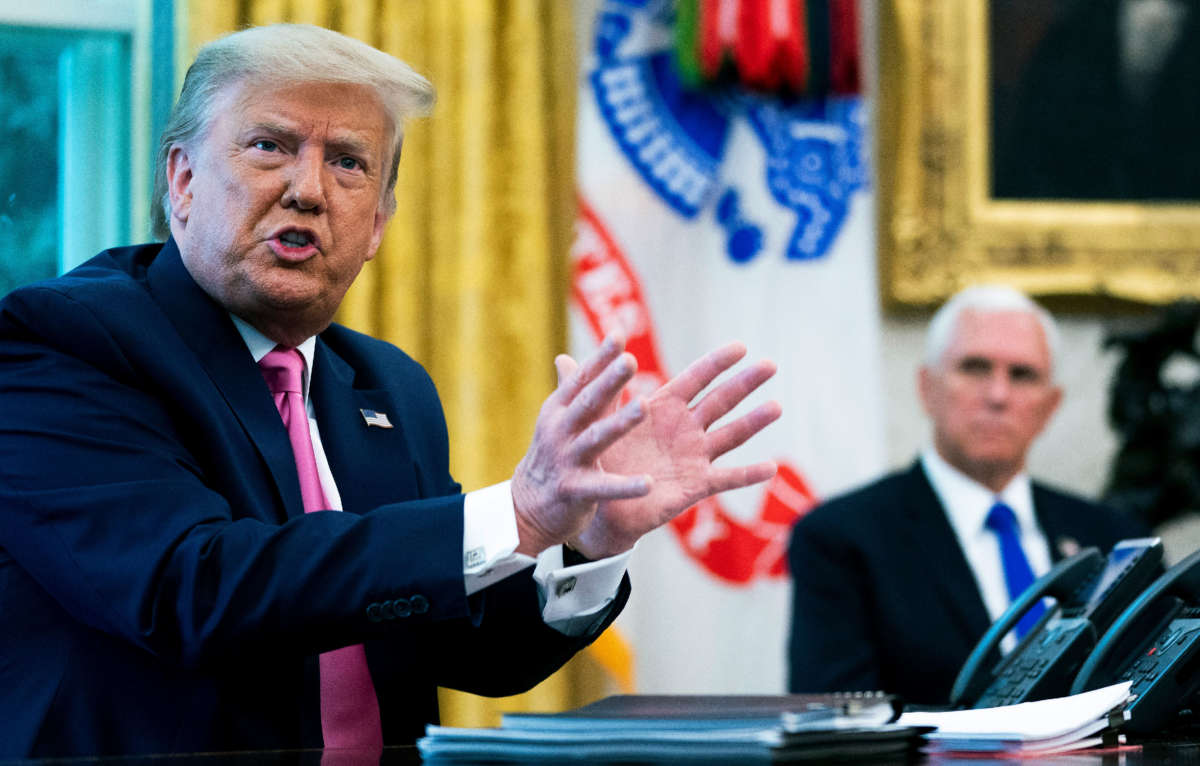President Donald Trump announced on Monday that, starting this week, he would be resuming daily coronavirus press briefings similar to those he held earlier this year.
Trump held those briefings beginning in March and lasting through the end of April, when he lamented in a tweet that the briefings were “not worth the time & effort” after news reports began fact-checking him in real-time and journalists present at the briefings began asking him questions that were more critical in nature.
Trump’s comments during the briefings were widely known for being contradictory to his own health experts’ advice for how to manage the coronavirus pandemic in the United States. The president also gave dangerous advice to the American people, including pushing a potentially dangerous drug that had not been tested as a means to treat COVID-19, as well as suggesting the ingestion of disinfectants ought to be given serious consideration.
On Monday, citing the television ratings that happened before, Trump said the briefings would be making a comeback.
“We had a lot of people watching […] in the history of cable television, there’s never been anything like it,” Trump said to reporters.
President Trump to restart coronavirus briefings
NEW: Pres. Trump says he is restarting coronavirus briefings."I think it's a great to get information out to the public," he says, adding, "We had a lot of people watching…in the history of cable television, there's never been anything like it." http://abcn.ws/39cQXVG
Posted by ABC World News Tonight with David Muir on Monday, July 20, 2020
It’s possible that, absent his ability to host campaign rallies across the country as widely as he has wanted to, the president is hoping to use the briefings as a means of promoting himself to a wider audience on a daily basis. Indeed, in April, several commentators noted that Trump’s spring round of press briefings were more akin to his campaign rallies than actually providing any benefit to the American people, as far as coronavirus and public health was concerned.
“They have become a daily stage for Trump to play his greatest hits to captive audience members,” Washington Post media columnist Margaret Sullivan said of the briefings.
Others warned that it was imperative for news media to look away from them.
“All of us should stop broadcasting it, honestly. It’s going to cost lives,” MSNBC’s Rachel Maddow said.
Last week, White House Press Secretary Kayleigh McEnany hinted that the briefings might be returning, suggesting that they were helpful to the president more than harmful to his image.
“It’s causation not coincidence that the president’s handling of the coronavirus was higher in public opinion when he himself was addressing the pandemic,” she said.
However, it’s not clear that McEnany’s predictions — that daily press briefings will improve Trump’s standing with Americans — will actually come true, nor is it clear that her assessment is based on reality.
According to Real Clear Politics’s averages of polling data, Trump had an average approval rating of 46.5 percent on March 27, when his daily press briefings had just started. By April 30, a few days after he decided to stop holding them, his average approval rating was down to 44.3 percent, with a majority of Americans (an average of polls showing 51.4 percent) saying they disapproved of the job he was doing.
A recently published ABC News/Washington Post poll finds that only 39 percent of the American public approve of the way he’s handling his job as president, while 57 percent disapprove of his job performance.
Join us in defending the truth before it’s too late
The future of independent journalism is uncertain, and the consequences of losing it are too grave to ignore. To ensure Truthout remains safe, strong, and free, we need to raise $43,000 in the next 6 days. Every dollar raised goes directly toward the costs of producing news you can trust.
Please give what you can — because by supporting us with a tax-deductible donation, you’re not just preserving a source of news, you’re helping to safeguard what’s left of our democracy.
